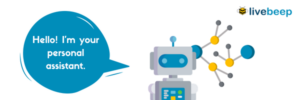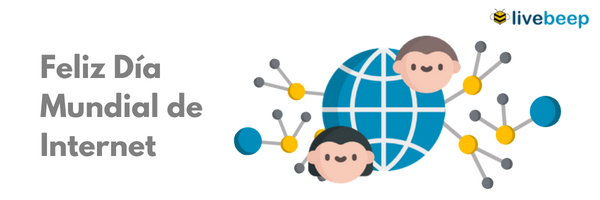In 2006, the UN declared May 17 as World Internet Day and at Livebeep we take advantage of this day to celebrate the events that have allowed technologies like ours to exist. It is also the World Day of Telecommunications and Information Societies.
First of all, let’s review the history of the Internet and how it has evolved until it celebrates World Internet Day:
Now, what do we know about Web 4.0?
We know that Web 4.0 is closely related to artificial intelligence. We know that the next challenge of the Internet is to better understand the daily needs of a digital user and predict future needs. It will be a website that knows us, that knows what we need, what we like and what we don’t. You will understand our natural language without having to do search efforts. It will be so effective that just by asking “I want a box of chocolates for Mother’s Day”, you will get the chocolate wrapped with a congratulatory message to your mother.

We are already living the first steps towards Web 4.0. These are virtual assistants such as Siri, Cortana or Google Assistant, although they still have a lot to improve.
So how will Web 4.0 affect online businesses?
The possibilities are virtually endless. It is very likely that virtual reality, Deep Learning and Machine Learning will lead us to a reality very similar to that of Minority Report.Today, betting on omnichannel, payments with mobile, chatbots or the implementation of predictive behavior technologies are small steps that eCommerce is taking to adapt to the next revolution.

We cannot forget that the drivers for Web 4.0 to reach the general public will undoubtedly be digital companies. In fact, this technological evolution is aimed, directly or indirectly, to facilitate the online sale of businesses. Of course, any change will bring advantages and disadvantages. One of the most important battles in which we will all be involved will be the war for privacy or technological dependence on humans. But a scenario will also be possible in which we can delegate the most routine tasks to technology and we can dedicate more time to tasks that are only reserved for the human species, such as thinking.




 Español
Español
